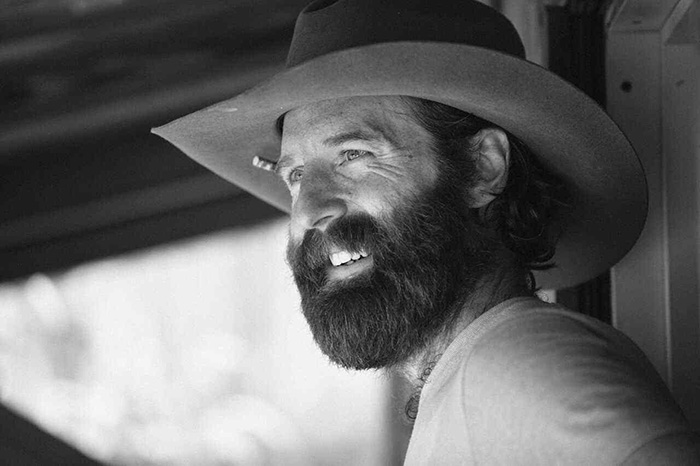SEAN DIETRICH
Three of us sat beside Mama’s above-ground pool, out in the wilds of Black Creek. We were beneath a dollar-store umbrella, and a canopy of live oaks and longleafs. My mother, my kid sister and me.
Mama’s old transistor radio played Don Gibson’s “I Can’t Stop Loving You.” My nieces were splashing in the plastic-framed pool, trying to see which child could rupture a vocal cord first. It was hotter than the hinges of hell outside.
“You look good,” Mama said to me.
“So do you,” I said.
“You’ve gained a little weight since the last time I saw you.”
“Well.”
The last time I saw Mama, my wife and I were moving away from the Florida Panhandle. That night, not so long ago, Mama and I were sitting on the Choctawhatchee Bay of my youth.
It was sunset. A heron was on the shore. And I was saying goodbye to Walton County, Florida, bound for Jefferson County, Alabama. Mama didn’t cry. But I did, a little.
She’s shorter than I remember. The woman has always been five-foot-two. But I’d guess she’s more like four-eleven now. If she were any shorter you could put her in your pocket and carry her around.
She has two brilliant white streaks of hair up front. The rest of her hair is stubbornly brunette. Because that’s what she is. Stubborn. My father once said she was the most stubborn woman he ever met. “She makes talking to a mule look easy,” is how he put it.
The radio was now playing to Conway Twitty’s “Linda On My Mind.” The nieces were engaged in a mutant version of Marco Polo, the worst game ever created by humankind.
“So what’s been going on?” Mama asked. “What have you been doing with yourself since you’ve been living in Birmingham?”
“Not much.”
“You write all the dang time.”
“Yes, ma’am.”
“Is that all you do is write?”
“Sometimes I go to the bathroom.”
The sun was overhead, baking the world into submission. Black Creek was looking good today. I once caught the most fish I’ve ever caught within the brackish waters of Black Creek.
At one time, I errantly believed I was an actual fisherman. But the truth is, I’m more of a Pabst Blue Ribbon enthusiast with a boat.
I looked at Mama. It was hard to believe this was the same woman who raised me. She only faintly resembles the smooth-skinned young woman who reared two children after the suicide of a troubled husband.
When my father engineered his own end, Mama was nearly the age I am now.
I remember how people treated her after it happened. I remember going into town to shop for groceries. I remember how people would sort of edge away from her because “suicide” is a dirty word, and nobody wanted to get trapped in a conversation where that particular subject might come up.
I also remember the way some people sort of forgot my family after my father’s death. Not because they were trying to be ugly, they weren’t, but because nobody quite knows what to say. What do you say? It’s easier just to leave it alone.
So I remember my mother walking through the supermarket, pushing her buggy. She was covered in a rainbow of bruises that my father had left her as a parting gift. Her skin was blackened. Her lower lip was busted and scabbed over. Some of her hair was missing because it had been pulled out.
She was trying to buy ground beef from the meat department. The butcher looked like he wanted to vanish. The cashier said three words to her. Very few folks made eye contact.
But my mother was unfazed. She acted like there was nothing wrong. Like nothing had happened. She acted as though my family had not recently landed in the newspaper.
Mama looked people directly in the eyes. She spoke to everyone as though they were pals. She cracked jokes. She smiled a lot. That was a long time ago, but she is still the toughest person I have ever known.
“So you’re doing good?” she asked me.
I nodded. “I think I’m doing okay.”
“You’re sure?”
“Yes, ma’am.”
She patted my thigh. “That’s good.”
Our life wasn’t easy. Many have had it worse than we did. But looking back, I now realize that our lives were a little bit easier than they should have been. Not just because of Providence. But mostly, because I had the privilege of being raised by a stubborn woman.


